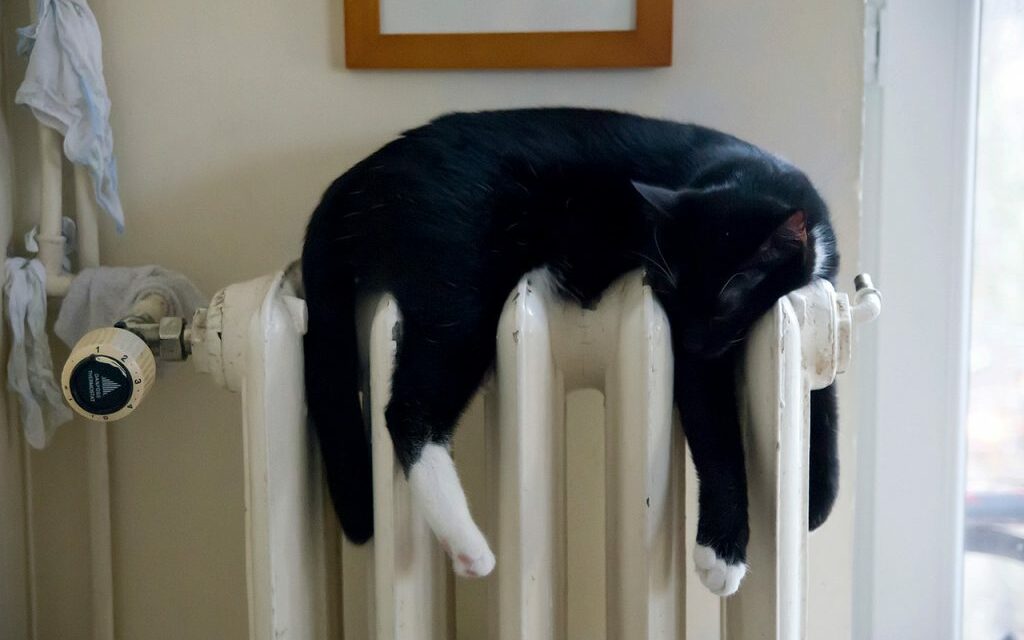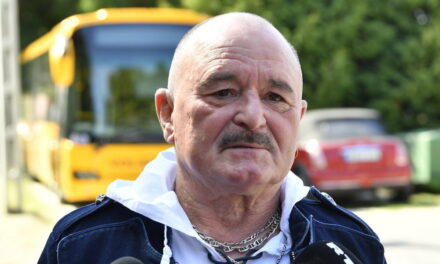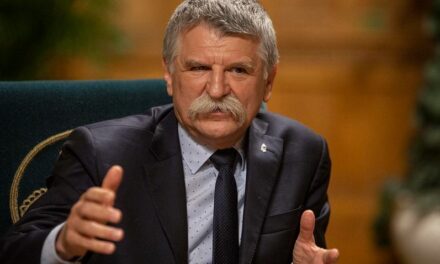The worst existing green policy is the one that accuses and then stigmatizes social groups on the basis of worldview and ideology, such as the wheelbarrows of the holy cause.
Válasz Online recently reviewed the writing of András Huszár, head of the Green Policy Center, in which the author explains that ultimately it is the national side that does not take seriously the efforts to protect the environment and the challenges of climate change, including the issue of energy consumption. In the article, he makes claims such as:
"it's precisely those who talk about a more frugal lifestyle who are close to the "Christian-conservative" idea of a modest, self-restraint lifestyle as a value... (part of) the government media suggests that it's cheesy to be frugal and exercise self-restraint, or at all make an attempt."
But I have to quote from an older article, because it reveals a lot about the attitude of the young man, who was born in Budapest in 1986, who graduated from law school in Szeged , and after various studies and jobs related to environmental protection, became the co-founder and director of the Green Policy Center in 2020. According to Facebook, it is a non-profit organization, but neither their annual report nor the list of supporters is available from their website.
one of the excerpts from his article Energy Price Crisis: Only the Trouble Will Get Bigger if We Throw Out the Common Climate Policy, published last October
"The entire EU climate policy is permeated by the desire to put the appropriate price on polluting energies, which makes users increasingly less interested in using these energy sources. Yes, but only this system, which sounds good in theory, assumes that relatively easily accessible and affordable alternatives are available that can replace fossil energies. For now, this is not the case in large numbers and reliably in many places. Therefore, from a certain point of view, the current phase of the EU's climate policy seems to be just a mockery for those who want to show it. And some politicians are happy to see the process this way. We are therefore in the middle of this tumultuous transition here in Europe, which is (also) causing the current turbulence. But when a plane gets into turbulence, does the whole journey have to be questioned?”
Now, if I understand correctly, here the reader is informed that
- the EU seeks to penalize the use of polluting energies;
- de facto, there are no readily available and affordable alternative energy sources that could replace polluting fossil fuels;
- anyone who calls all this hacking is an evil politician - referring here to the Hungarian government - because it actually only looks like hacking from a "certain point of view".
Tell me, which point of view is that? The realist?
But I can't miss the ball sent high at the end of the quote, when the author wonders if he questions the meaning of the milky way if a plane gets into turbulence?
In my humble opinion, it depends heavily on whether or not the plane eventually crashes.
But if we repeat the statement that, at this moment, there is not enough renewable energy available to "keep the plane in the air" - sticking to the author's analogy - then that plane will surely fall into the ground. It's as simple as that. Instead of a hundred, the Germans can build a thousand or a million wind turbines, if the wind decides not to blow, the only difference will be that instead of a hundred, a thousand or a million wind turbines will not produce the necessary electricity. Plus, the environmental damage caused by the construction of the monsters in the name of protecting the environment is not incidental either.
But let's turn to the article published the other day, which, practically without any concrete or representative measurement, boldly declares that the Hungarian right-wing leads a wasteful lifestyle and that
"Even at the highest political levels in Europe, ideas are being created about what people could or should do to reduce the burden on our environment, including energy consumption. In Hungarian politics and public life, primarily from around the government side, there were mainly sarcastic and cynical reactions to this."
The thing is, the very premise is wrong.
First of all, there is really no data on the worldview of savers and spenders, which party's voters, unless we consider the April elections, where the ruling party once again beat the united opposition to shreds by 2/3, ergo the entire population Fidesz is more popular among However, this does not mean that the orange countryside leads a more wasteful lifestyle than the red metropolis. What's more, if we look at the historical aspects, it can be definitely stated that during the decades of socialism, but even after the system change without accountability and purification, it was forced to learn the science of saving and is able to economize if necessary.
I know this for sure because I come from there, from rural Hungary, from its poorest, eastern corner. And unlike young green revolutionaries or Western politicians, I know what it was like as a child to get dressed in the unheated room in the morning, when my mother warmed socks and stockings over the oil stove so that she wouldn't have to take a crying child to kindergarten. And I know what it's like to carry water from the well in an enamel bucket, I know what it's like to walk to school, I know what it's like to bathe in a lavatory, and to put as much on your plate as you eat. I am not affected by the reduction in utilities, because we do not consume more in the first place, and my food does not end up in the bin, the animals eat the rest, if there is any. And I could go on and on about why it's surreal when ardent green people who have never seen hunger, cold and misery warn me, because being a right-winger I obviously lead a wasteful lifestyle.
And here comes the second mistake, maybe it stems from the author's difficulties in understanding the text, in any case, I have not read a single article that condemned the thrifty, environmentally conscious attitude, on the contrary, the empty, discredited and excessive Pharisaic advice that the EU some representatives of the elite addressed the average taxpayers. They didn't say that we shouldn't heat pools and palm houses, don't take saunas, or splash around in the jacuzzi, but that we shouldn't bathe for weeks at a time. Let's air out our clothes or heat the apartment with tea candles!
And to hear all this from the mouths of bureaucrats who were born into unprecedented prosperity and receive monthly allowances from our tax forints that are unimaginable for the average person, well, it is more than irritating.
One word, like a hundred: these unrealistic lifestyle tips were mocked and portrayed for a reason, but this reason is not the rejection of environmental awareness, but the uselessness of hypocrisy. By the way, I would like to know whether the politicians and preachers who encourage the avoidance of bathing and heating, if they lived for just one week in the conditions expected of their taxpayers, would they continue to propagate their world-saving ideas with the same enthusiasm?
Finally, here is an instructive story about the now green left-wing approach, which is just as unrepresentative as András Huszár's opinion; but at least it happened.
In the summer of 2007-2008, I spent a week or two on Lake Balaton with a sailing friend of mine on his battered Balaton 25. Even then, this boat category was considered low-class, without a built-in engine, steering wheel, toilet or kitchen, but when you are young, you don't have big needs. We started from Siófok and sailed along the lake, all the way to Keszthely - I still know Lake Balaton better from the inside than from the shore. I particularly liked the Mahart harbors in Földvár, Badacsony and Szigliget, this memory is also connected to Szigliget.
That day we started back from Keszthely, it was about five o'clock in the afternoon, the newly opened port in Keszthely was so barren that we decided to go back to Szigliget, the "elite" port. The day before, we had already seen a miracle ship there, a catamaran, it was considered a rare bird on Lake Balaton, the price even then was in nine figures. And we also saw the owner, with his family, we heard his phone conversations on the terrace of the buffet, he didn't even hide it, he didn't step aside, and the names of the politicians popped up just the way it should to make it unmistakable - he is SOMEBODY.
So we went over to Keszthely to have lunch and see the city, and then headed back in the afternoon. But the wind stopped. For agonizing hours, we motored, with the sails retracted, while it got dark and ominous lights flashed beyond the Witness Mountains; there was lightning, the storm signal changed to two. Anyone who knows Lake Balaton knows that trouble comes quickly, faster than you think, so the last hours were very tense, it was doubtful whether the fuel would last, so we didn't talk much, we didn't drink or eat, we just stared at each other. the seemingly distant coastal lights.
We finally ran in around midnight, a huge stone fell from our hearts, and it seemed like nothing to look for a place in the overcrowded port. We didn't even find a good one, and there was one, all the way inside, at the base of the catamaran occupying double space. We were amazed that it was free, and our doubts were drowned out by the joy of liberation, because we had finally reached safe "ground" from the open water. We were so exhausted that we didn't even feel like drinking in the hot night, so we quickly downed a Unicum for the great excitement and then went to sleep.
That's when we got the strange realization that something was going on . In other words, the water trickles into the lake from a clearly defined place in the silence of the harbor. Loudly. Loud enough that you don't want to fall asleep because you're afraid of the possible embarrassing consequences of the trickle building up in your sleep. But what the heck is this? We climbed out of the cabin and quickly identified the source of the sound - the condensate from the catamaran's air conditioner, which had been sealed by the owner, was leaking into Lake Balaton. It was then that the strange fact that there was a free space in the central part of the Szigliget harbor at midnight made sense.
We understand, right, what happened? SOMEBODY jumped off to go sailing with the family, and then deliberately left the air conditioning on so that the next time he rushes there - in a day or a week - he can step into a pleasantly cool boat. This was the only reason why he spun the harbor's electric clock and made it impossible for the ships next to him to spend the night peacefully.
The owner's name was Ernő Mesterházy, his wife Mónika Mécs.
It was also said at the time that the daughter of Imre Mécs hollowed out half of the Old Mountain when building their house, and workers were brought from Tapolca so that the locals wouldn't accidentally learn anything about the exotic details, but of course that's just a rumor...
Featured Image: Pixabay












